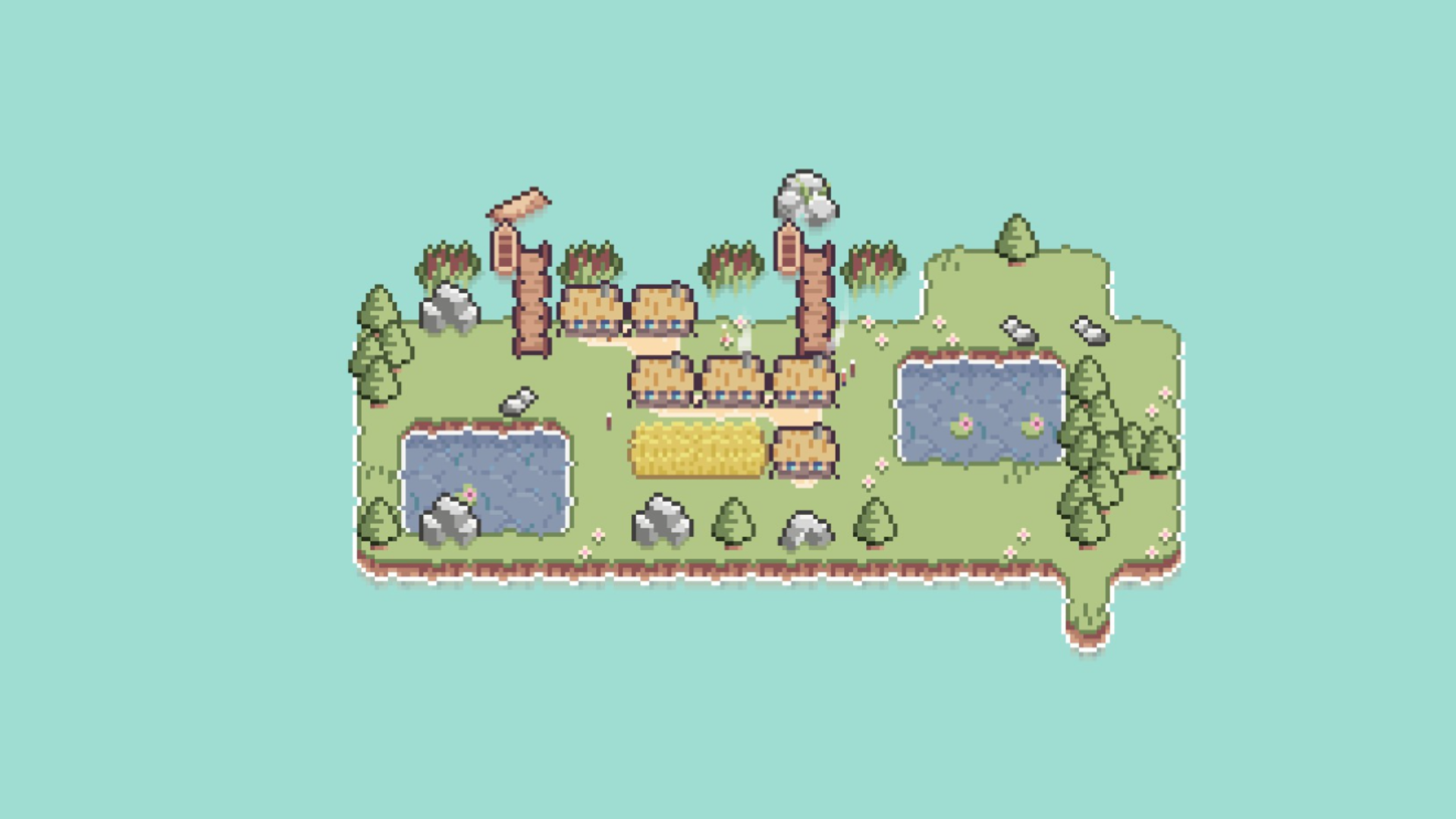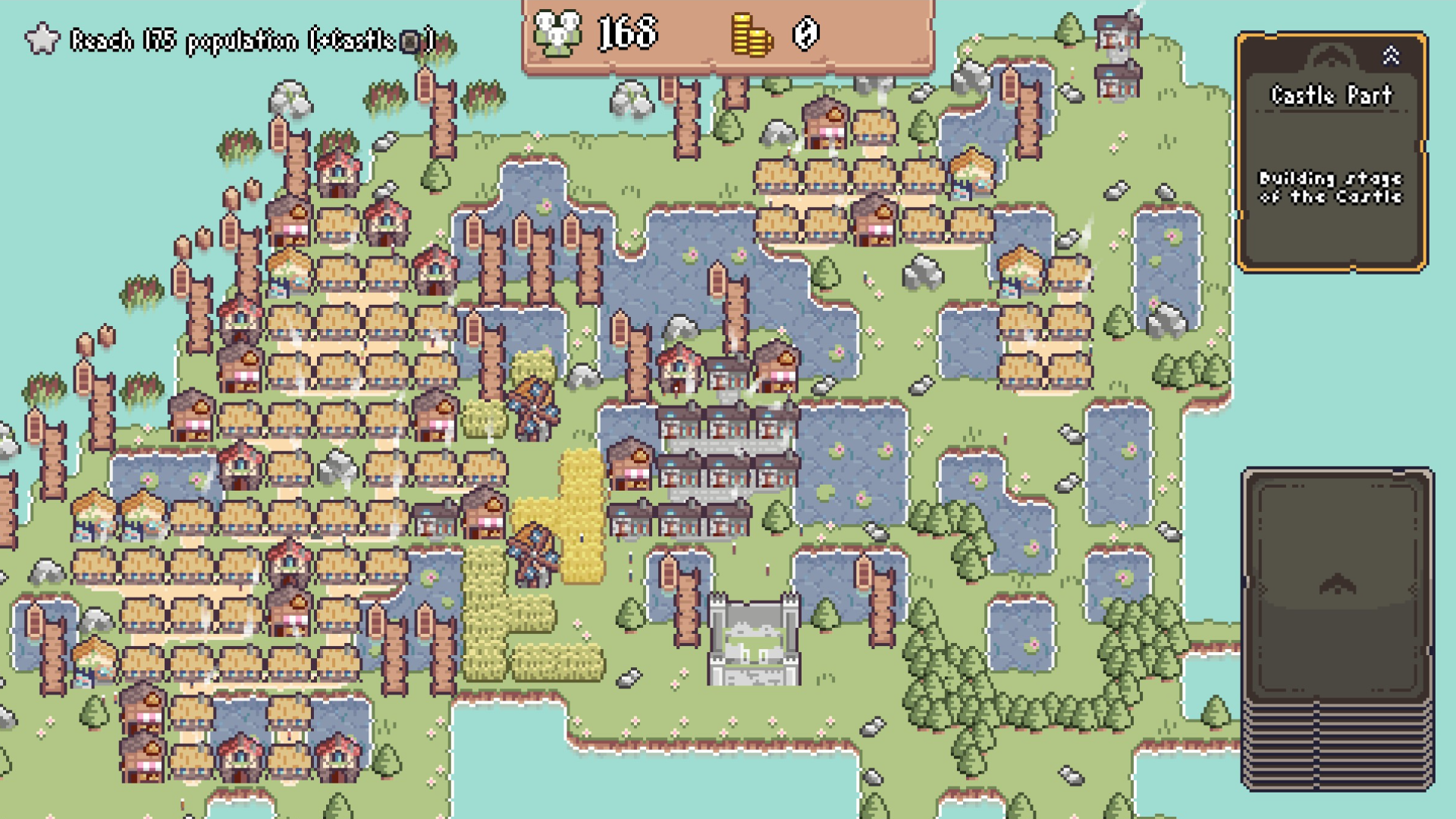Card-based city-builder Tiny Kingdom might look cosy, but there's no time to relax when the fate of the realm is literally in your hand
I need trees, piers, and a bakery stat.

On my never-ending quest to find the most compelling city-builder, I stumbled upon Tiny Kingdom's demo. This game is a building and management roguelike deckbuilder, where you collect cards, balance the books, and try to expand your tiny village into a glorious kingdom.
After a quick first game, I felt like I was almost getting the hang of things, so I decided to give it another go to see if I could beat my high score of a village of 20, you get 2 villagers for every house you build so I didn't think it would be too difficult. Fast forward to an hour and 15 settlements later, I finally made some serious progress and ended with a village of 168, which is probably more like a small town at that stage. But after running into a dead end, I had to abandon the run and start over again, roguelike-style.
Tiny Kingdom isn't terribly complex, especially compared to city builders like Manor Lords or Synergy, which have intricate economic and social systems that you also have to account for. Instead of trading or cutting down nearby trees, in Tiny Kingdom, you build your city by collecting cards.
You can get cards that let you build houses that'll grow your population size and allow one free draw from your deck, cards that'll let you plant hops of wheat that'll give you two coins in return, and a card for a pier that'll grant you new island pieces that you can use to expand the land your kingdom is built on. The longer you play, the more cards you'll unlock: averns, mills, bakeries, and castles, each one has its own perks. I actually don't know how many there are—it's something that I'll find out as I reach higher population sizes.
If you thought managing the buildings sounded hard, the cards in your deck aren't unlimited. To get more, you either need to build structures or gather resources. Trees and stone appear on random island pieces, and can be gathered if you use a lumberyard or quarry card. Gather the resources and the game will automatically add a wooden or stone house to your deck for later use. But if you run out of cards in your deck, then that's the end of the line—you'll have to pack everything up and start again.

You have to monitor the kingdom's coffers, too. It costs one gold coin to draw a card, and as you only start with 10 coins, you need to turn a profit consistently throughout the game to be able to draw more cards and carry on playing. Planting crops will give you a small amount of money, but I found the best way to build your hand is to use house-building cards. These will let you pick up a subsequent card after you place the cottage down, so it's an excellent way to stay on top of your money.
There's a clear cycle of extracting and building in Tiny Kingdom, and once you get the hang of it, everything takes care of itself. But it's precariously balanced, and sometimes all it takes is one bad deck for it all to come crashing down.
The biggest gaming news, reviews and hardware deals
Keep up to date with the most important stories and the best deals, as picked by the PC Gamer team.
That's part of the fun of roguelike deck builders—luck does play a small part in your success.
The cards you get are quite random. There is some pattern as to when you unlock different ones, but it's not always predictable. One run I had, where I was doing really well for my kingdom with a healthy coin purse and a bustling population, was stunted because no matter how many trees I cut down, it only gave me houses and no piers, which meant I couldn't get any more land, so after a while, I just ran out of space to build.
This can be frustrating, especially when you lose a run due to circumstances that feel out of your control, but that's part of the fun of roguelike deck builders—luck does play a small part in your success.
I haven't been able to expand my kingdom beyond 168 people so far, but that hasn't stopped me from trying. And no matter how many times I play, I always seem to end up with an island that looks completely different. I've taken a screenshot of my kingdoms at the end of each run just to compare how different each one is. I've had kingdoms full of ponds, vast blocks of land full of trees and fields of wheat, and one that ended up looking like a cosy megacity where I built every house in the same area.
Like I said, I haven't progressed past 168 residents so far, so I don't actually know where the limit is to finding new cards and expanding your island. As this is only a demo, I'd expect even more to be added once it releases in full (although there's no specific date for that yet). But for the time being, Tiny Kingdom is a brilliant deckbuilding roguelike demo with a moreish premise and plenty of options to make a kingdom the way you want it to be.

Elie is a news writer with an unhealthy love of horror games—even though their greatest fear is being chased. When they're not screaming or hiding, there's a good chance you'll find them testing their metal in metroidvanias or just admiring their Pokemon TCG collection. Elie has previously worked at TechRadar Gaming as a staff writer and studied at JOMEC in International Journalism and Documentaries – spending their free time filming short docs about Smash Bros. or any indie game that crossed their path.

